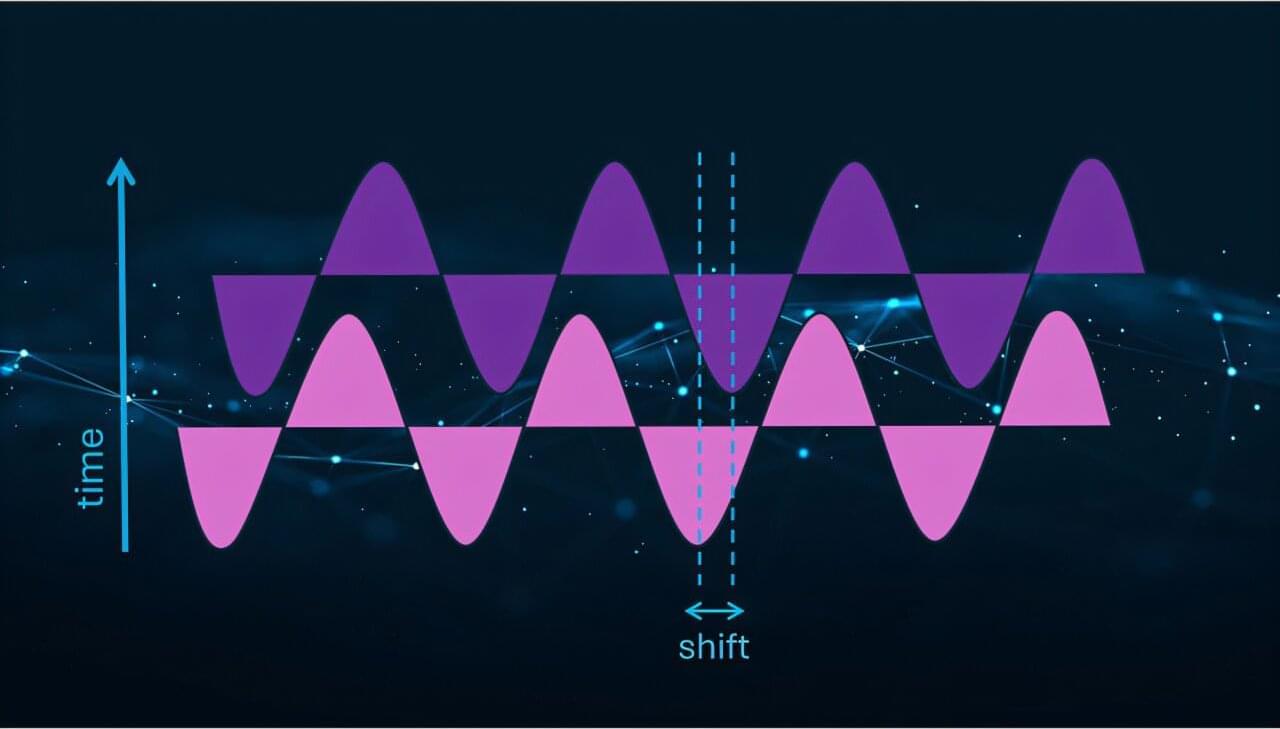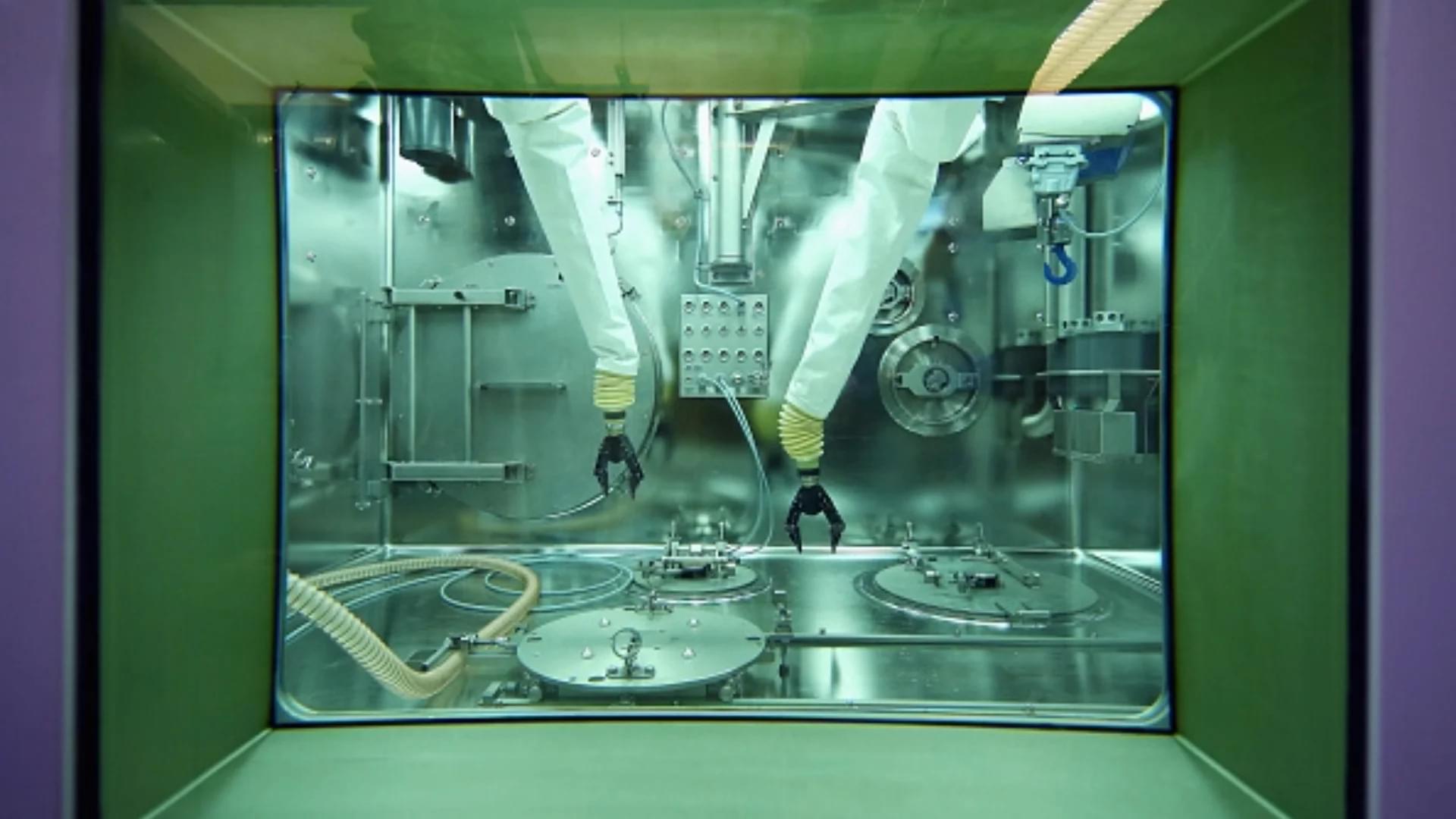OpenAI CMO Kate Rouch on the company’s ambition to build an iconic brand, the creative direction of its first big ad, and why it suited up for the Super Bowl.
Get the latest international news and world events from around the world.

Quantum computers successfully model particle scattering
Scattering takes place across the universe at large and miniscule scales. Billiard balls clank off each other in bars, the nuclei of atoms collide to power the stars and create heavy elements, and even sound waves deviate from their original trajectory when they hit particles in the air.
Understanding such scattering can lead to discoveries about the forces that govern the universe. In a recent publication in Physical Review C, researchers from Lawrence Livermore National Laboratory (LLNL), the InQubator for Quantum Simulations and the University of Trento developed an algorithm for a quantum computer that accurately simulates scattering.
“Scattering experiments help us probe fundamental particles and their interactions,” said LLNL scientist Sofia Quaglioni. “The scattering of particles in matter [materials, atoms, molecules, nuclei] helps us understand how that matter is organized at a microscopic level.”

How PsiQuantum plans to build world’s largest quantum computer by 2027
With an investment of AU$1 billion, PsiQuantum is planning to build a photonic quantum computer with a million qubits, far larger than any in existence today — and the firm says it will be ready in just two years.

CERN Physicists Use AI To Understand the ‘God Particle’
To identify signs of particles like the Higgs boson, CERN researchers work with mountains of data generated by LHC collisions.
Hunting for evidence of an object whose behavior is predicted by existing theories is one thing. But having successfully observed the elusive boson, identifying new and unexpected particles and interactions is an entirely different matter.
To speed up their analysis, physicists feed data from the billions of collisions that occur in LHC experiments into machine learning algorithms. These models are then trained to identify anomalous patterns.


Fast-moving exoplanet system may be the fastest-ever discovered
SPACE (KXAN) — A star flying through the night sky may be the fastest-moving solar system in our galaxy. Possibly a planet a little larger than Neptune orbiting a small star, the system could be moving at least 1.2 million miles per hour, according to NASA.
First discovered in 2011, the system was included in a research project led by Sean Terry with the University of Maryland, College Park, and NASA’s Goddard Space Flight Center. Terry’s paper on the star was published in February in The Astronomical Journal.
“We think this is a so-called super-Neptune world orbiting a low-mass star at a distance that would lie between the orbits of Venus and Earth if it were in our solar system,” Terry said in a press release from NASA.

Third form of magnetism, recently confirmed, could transform electronics
Researchers in Sweden have reported control over a new kind of magnetism with the potential to boost electronic performance. Their work shows that this new class of magnetism, called altermagnetism, can increase memory device operation speeds by up to a thousand times.
Scientists say it stands apart from the two widely known forms of magnetic order and may open doors to faster, more efficient technologies.
Scientists from the University of Nottingham’s School of Physics and Astronomy have confirmed this third category in microscopic devices, and their findings have been published in Nature. Professor Peter Wadley from the same institution led the research.

Quantum Computers Just Got a Breakthrough Boost With Fiber-Optic Power
Qubits—the building blocks of quantum computing—are driving advancements across the tech industry. Among them, superconducting qubits hold great promise for large-scale quantum computers. However, they rely on electrical signals, making them challenging to scale.
In a breakthrough, physicists at the Institute of Science and Technology Austria (ISTA) have successfully developed a fully optical readout for superconducting qubits, overcoming a key technological hurdle. Their findings, recently published in Nature Physics.
<em>Nature Physics</em> is a prestigious, peer-reviewed scientific journal that publishes high-quality research across all areas of physics. Launched in 2005, it is part of the Nature family of journals, known for their significant impact on the scientific community. The journal covers a wide range of topics, including fundamental physics, applied physics, and interdisciplinary research that bridges physics with other scientific disciplines. Nature Physics aims to highlight the most impactful and cutting-edge research in the field, providing insights into theoretical, experimental, and applied physics. The journal also features reviews, news, and commentary on major advances and issues affecting the physics community.
